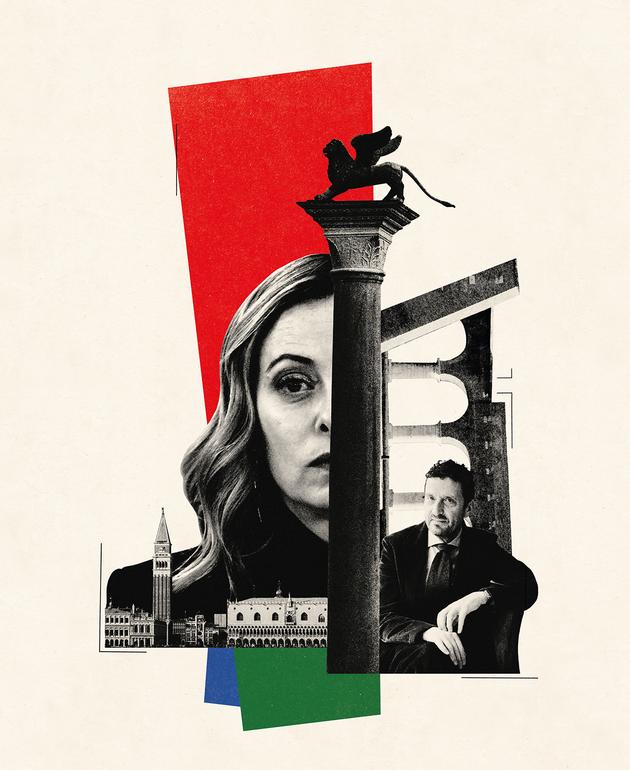
Rarely has a press conference been followed so closely. On January 31, in the columned hall of the Ca'Giustinian, a Gothic palace on Venice's Grand Canal, Italian journalists listened as Brazilian curator Adriano Pedrosa outlined the contours of the next Biennale of Contemporary Art, which opens to the public on April 20. This one, he promised, will be bountiful – with 332 artists – and political.
The edition will shed light on the forgotten creators of the southern hemisphere, neglected arts such as textiles, Indigenous peoples dispossessed of their lands and queer minorities, with Pedrosa recalling that he is the Biennale's "first openly homosexual curator." As for the title of this year's edition, "Foreigners everywhere," it comes from a work by Claire Fontaine, a duo of artists based in Palermo, which refers to the name of a Turin-based anti-racist collective active in Italy in the early 2000s.
The title is sadly prophetic, as Pedrosa pointed out: According to the United Nations High Commissioner for Refugees, the number of displaced people has never been greater than in 2023. "Wherever you go and wherever you are, you will always encounter foreigners," said the curator, who said he has often been treated as someone from the "third world." "No matter where you find yourself, you are always truly, and deep down inside, a foreigner," he said.
Astonishing character
As they blackened their notebooks, the journalists watched for reactions from Pietrangelo Buttafuoco, the Biennale's new president, seated in the front row, a dark-haired 60-something with an angular face. Appointed in November 2023 by Giorgia Meloni's government for a four-year term, the intellectual is an open supporter of the Italian prime minister, whose post-fascist Fratelli d'Italia party lashes out at migrants, LGBT+ activists and anti-racism. In short, everything that this new edition of the Biennale embodies.
The new strongman of the Venice Biennale is an astonishing character. Born in Catania in 1963, this philosophy graduate cut his teeth at Secolo d'Italia, the press organ of the post-fascist MSI (Italian Social Movement) party, of which his uncle was a leading figure, as well as at the very conservative Il Giornale, which belonged to the Berlusconi family. But the maverick also wrote for left-wing newspapers such as La Repubblica and Corriere della Sera. A man of letters and author of several books, he was also a member of the central committee of the MSI, then of Alleanza Nazionale, another far-right party, until 2003.
You have 83.65% of this article left to read. The rest is for subscribers only.